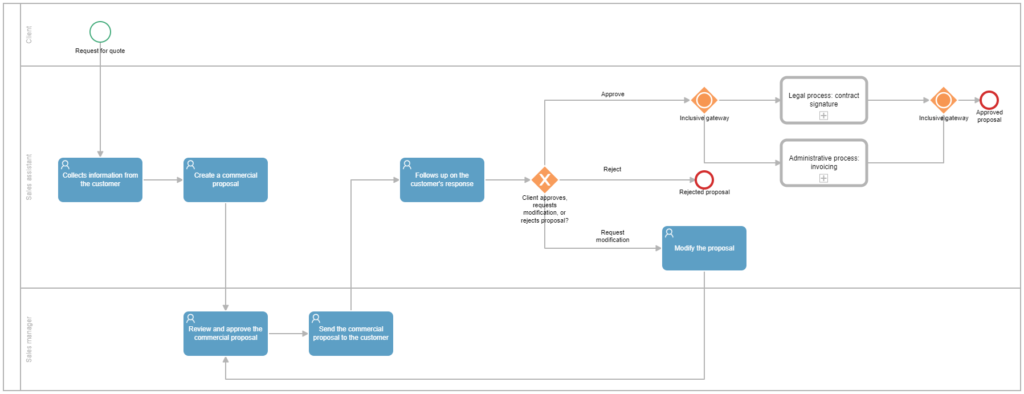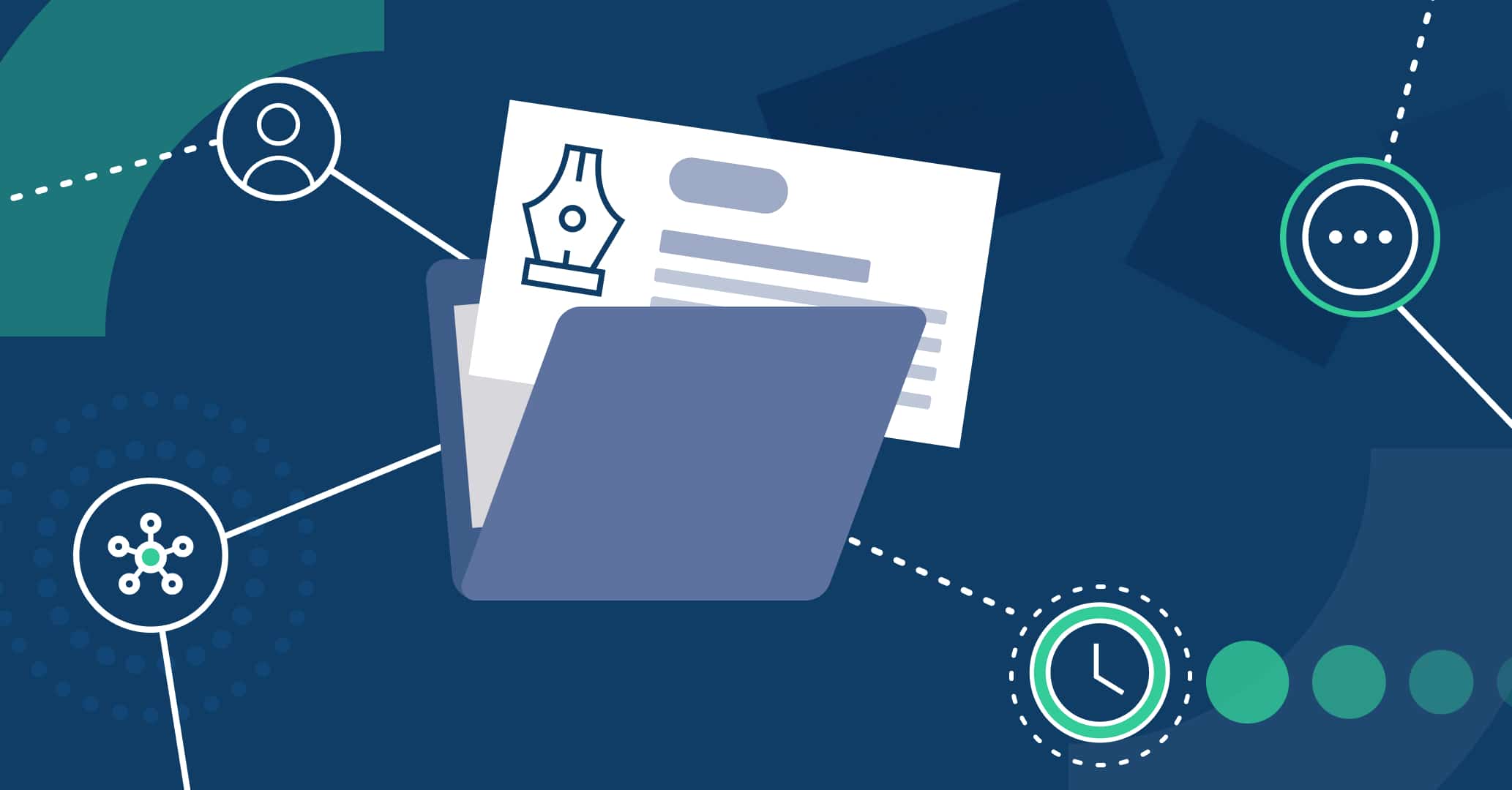Introduction
Document management is a set of processes and procedures carried out for the creation, collection, storage, organization, retrieval, and disposal of documents. In the business sector, document management is crucial for the success of companies.
Document management in the business area covers a wide range of documents, such as business proposals, contracts, invoices, purchase orders, etc. These documents are essential for the sales process as they provide information about the products or services offered, the terms and conditions of the sale, among other details.
Effective document management in the business sector enables companies to:
Track sales opportunities: Document management allows companies to track sales opportunities, from quotation requests to contract signing. This helps companies identify improvement opportunities and optimize the sales process.
Improve communication with customers: Document management enables companies to communicate effectively with customers because business documents provide clear and concise information about the products or services offered.
Reduce costs: Good document management can help companies reduce costs associated with document management. This is because automated document management can save time and resources.
Document management for business proposals
Business proposals are one of the most important documents in the business sector. It is a document that presents to a client the products or services offered, the terms and conditions of the sale, etc.
The preparation of business proposals can be a complex and laborious process, involving information gathering, analysis, creating a commercial document that meets customer requirements, estimating and quoting, and presenting the proposal.
Benefits of using BPM software for document management of business proposals
BPM software, such as Qflow, can help businesses automate and optimize the process of preparing commercial proposals. This allows businesses to improve their efficiency and productivity, as well as reduce response times and risk of errors.
Some of the specific benefits of using BPM software for commercial proposal document management are:
Process acceleration: BPM software can help accelerate the commercial process by controlling the response times of process tasks, sending reminders and alerts to complete tasks, even defining deadlines and automatically routing tasks to a supervisor if deadlines are missed. In addition, by reducing the time spent on tasks that were previously executed manually, such as sending emails to request review and approval of proposals or scheduling follow-up of proposals sent, commercial teams can focus on more strategic and value-added tasks.
Improved collaboration: BPM software can facilitate collaboration between members of the sales team. This is because the software allows users to share information and work on the process simultaneously.
Improved tracking: BPM software can help businesses track the status of commercial proposals. This allows businesses to identify opportunities for improvement and optimize the process.
Example of how to use BPM software for document management of business proposals
For example, imagine that a service company receives a request for quotation from a potential customer. The proposal preparation process could be as follows:
- The potential customer fills out a request for quotation form on the company’s website. This is possible thanks to the start-process functionality by external users that allows people external to the organization, such as a client, who do not have a user created in Qflow, to start processes through public forms
- The BPM system assigns the request to a sales assistant.
- The sales assistant collects the necessary information from the customer, such as their needs and requirements.
- The sales assistant creates a commercial proposal that meets the customer’s requirements.
- The sales assistant sends the commercial proposal to the sales manager for review.
- The sales manager reviews the commercial proposal and makes the necessary changes.
- The sales manager sends the commercial proposal to the customer for approval.
- The sales assistant follows up on the customer’s response.
- The customer can approve, reject, or request a modification to the proposal:
- If the customer requests a modification, a task is assigned to the sales assistant to modify the proposal and it goes back to the sales manager for approval and sent again to the customer.
- If the customer accepts the proposal, the process is forwarded to the legal department for contract signing if appropriate and the administrative department to issue invoicing.
- If the customer rejects the proposal, the process ends.
Next, we will see how this flow is designed in the Qflow tool, ready to be automated!

Conclusions
Document management in the business sector is crucial for the success of companies. BPM software can help companies automate and optimize the business proposal preparation process, allowing them to improve efficiency, productivity, and competitiveness.






